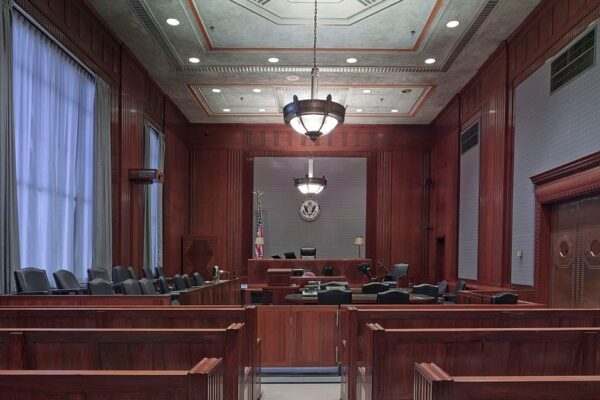Racial bias plagues our criminal justice system. That is why yesterday, with the Arizona Attorneys for Criminal Justice, we filed a brief with the Arizona Supreme Court in a case about racially discriminatory jury selection, Urrea v. Arizona.
We believe the Arizona Supreme Court should use the Arizona Constitution’s strong protections against racial discrimination to allow courts latitude in deciding how to remedy biased jury selection by prosecutors.
Racial disparities are readily apparent in Arizona’s criminal justice system. As we wrote in our amicus brief to the Arizona Supreme Court:
Arizona has the highest rate of imprisoned Latinos in the country. One in 40 Latino adults in Arizona is in prison. Despite making up 30 percent of the overall state population, Latinos account for almost 40 percent of the prison population. Black Arizonians fare even worse. One in 19 black men in Arizona is imprisoned. While Black people constitute less than 5 percent of the state’s population, they make up over 14 percent of the entire prison population. In 2016, the Black imprisonment rate in Arizona was the sixth highest in the country.
The problems of racial disparities and racial discrimination in the criminal justice system do not begin and end with proper jury selection, but juries provide a functional and symbolic safeguard against the discriminatory and abusive use of government power. Even back in 1880, the U.S. Supreme Court recognized, in a case called Strauder v. West Virginia, that it “is the jury that is a criminal defendant’s fundamental protection of life and liberty against race or color prejudice.”
Although the U.S. Supreme Court, in a case called Batson v. Kentucky, set some rules under the U.S. Constitution for how to prevent and remedy racial bias in jury selection, those rules are not very effective. Judges reject most Batson claims of racially biased jury selection in part because there are too many ways for prosecutors to hide their racial bias behind race-neutral reasoning.
Every time prosecutors are caught acting in a racially biased way during jury selection, courts must be able to deploy significant consequences for that discriminatory behavior.
That is why it is incredibly important for courts to be able to fashion appropriate remedies when racially biased jury selection is uncovered. Every time prosecutors are caught acting in a racially biased way during jury selection, courts must be able to deploy significant consequences for that discriminatory behavior. Meaningful penalties are the only deterrent to prosecutors engaging in racial discrimination during the jury selection process.
In Batson, the U.S. Supreme Court described two possible remedies for racial discrimination in jury selection: (1) discharging the entire jury pool and selecting a new one, and (2) putting the jurors who the prosecutor discriminatorily excluded back into the jury pool. But the U.S. Supreme Court did not limit trial courts to just these two remedies. Arizona courts may impose remedies more severe than those discussed in Batson.
With Urrea v. Arizona, the Arizona Supreme Court has a chance to encourage trial courts to impose contextual remedies to advance the Batson guidelines. For instance, upon finding racial bias in jury selection, a trial court should be allowed to use the Batson remedies and impose sanctions, such as fines on the offending attorney or eliminating the prosecution’s ability to strike jurors without justification. Should the racially discriminatory conduct be consistent or especially egregious, the trial court could choose to bypass the remedies discussed in Batson and dismiss the charges.
The Arizona Supreme Court should take this opportunity to help reduce racial bias in our criminal justice system. If you’re interested in reading more, our brief is available here.


